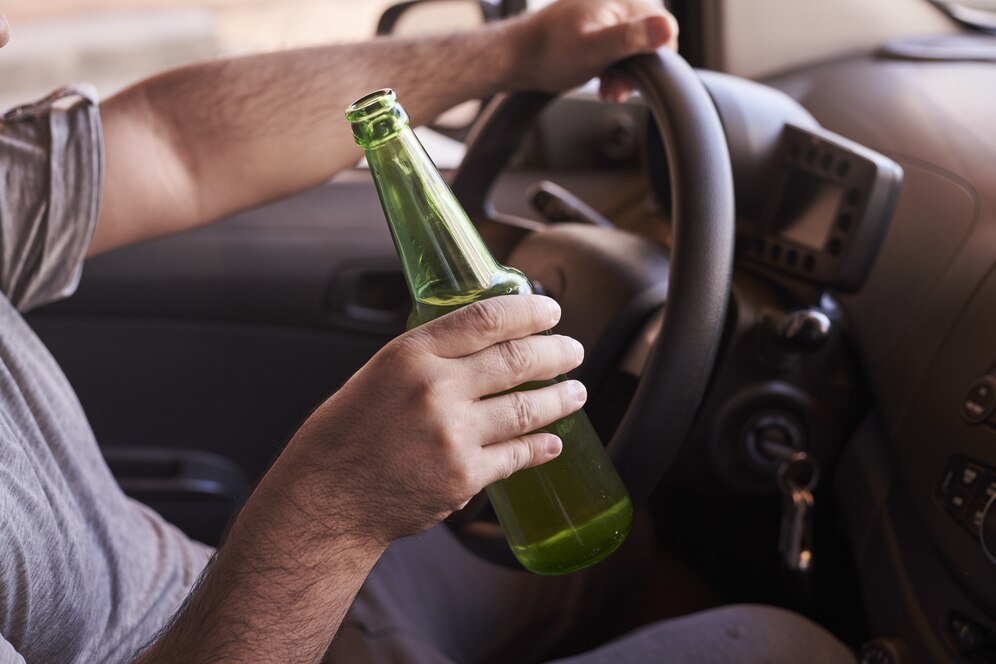OUI Vs. DUI Vs. DWI: What’s The Difference?

Different jurisdictions use different legal terms for impaired driving, so the words OUI, DUI, and DWI often leave people confused about what they mean. Knowing these rules about driving while impaired is important to understand the possible outcomes and legal implications fully.
Driving under the influence, you could be arrested by the traffic authorities or, worse, be involved in a car accident resulting in severe injury or even the loss of life. Did you know that approximately 31% of all traffic accident fatalities in the United States are linked to drivers who are under the influence of alcohol?
While DUI and DWI are commonly used in most states, OUI is not often used. But what does OUI mean when driving? And what exactly sets them apart? In this article, you will find out how these terms all relate to charges associated with driving under the influence of alcohol or drugs.
Legal Definitions Of Oui, Dui, And Dwi
When it comes to understanding the legal definitions of OUI, DUI, and DWI, clarity is key to differentiating between these terms. OUI stands for Operating Under the Influence, which is used in some states like Maine and Massachusetts instead of DUI or DWI.
The full form of DUI is Driving Under the Influence, and that of DWI is Driving While Intoxicated or Driving While Impaired. These terms all refer to the act of operating a vehicle while under the influence of alcohol or drugs. The specific terminology used can vary by state, but the underlying offense remains the same.
Understanding the distinctions between OUI, DUI, and DWI is necessary, as it impacts the legal consequences and penalties associated with each offense. Regardless of the term used in your state, the bottom line is that driving under the influence is dangerous and illegal.
Variations In Terminology By State

Across different states in the United States, the terminology used to describe offenses related to driving under the influence can vary significantly. Some states predominantly use terms like DUI (driving under the influence) or DWI (driving while intoxicated), and others may refer to the offense as OUI (operating under the influence) or OWI (operating while intoxicated).
These variations can sometimes lead to confusion, especially if you’re moving or traveling between states. For instance, in California, you might hear about a DUI, whereas in Texas, the same offense is often referred to as a DWI.
Blood Alcohol Concentration (Bac) Thresholds
BAC thresholds determine the level at which a person is considered impaired and can be charged with a DUI, OUI, or DWI. In most states, the legal BAC limit for non-commercial drivers is 0.08%. Some states have stricter limits for certain groups, such as commercial drivers or individuals under the legal drinking age.
Exceeding the legal BAC limit can lead to severe consequences, including fines, license suspension, and even imprisonment. States may also impose enhanced penalties for BAC levels significantly above the legal limit.
Be aware of the specific BAC thresholds in your state, and always practice responsible drinking habits. Even if you feel capable of driving after consuming alcohol, your BAC level might still be above the legal limit, putting yourself and others at risk.
Penalties And Consequences
Facing a DUI, OUI, or DWI charge can result in significant penalties and consequences that may impact various aspects of your life. If convicted, you could face fines, license suspension, mandatory alcohol education programs, community service, or even jail time, depending on the severity of the offense and your prior record. These penalties can have lasting effects on your personal and professional lives.
For instance, a suspended license can make it challenging to get to work or fulfill family obligations. At the same time, a criminal record may affect future job prospects or opportunities for higher education. Insurance rates are likely to increase significantly after a DUI, OUI, or DWI conviction. Some employers may have policies against employing individuals with certain criminal records, potentially putting your current job at risk.
Related: Choosing The Right Criminal Defense Lawyer For You: 9 Tips
Impact On Driver’s License And Record

Experiencing a DUI, OUI, or DWI charge can lead to immediate repercussions on your driver’s license and record. If convicted, your license may be suspended or revoked, depending on the severity of the offense and your state’s laws. A suspended license means you temporarily lose your driving privileges, and a revoked license involves a complete termination of your ability to drive.
A DUI, OUI, or DWI conviction typically results in points being added to your driving record. These points can lead to increased insurance premiums or even the cancellation of your policy. Having a tarnished driving record may also affect your employment opportunities, as some jobs require a clean driving history.
Some states impose mandatory participation in alcohol education or treatment programs as part of the penalty for these offenses. Failing to comply with these requirements can further jeopardize your license status and overall driving record.
The Role Of Lawyers In Dui Cases
When you are charged with the crime of driving under the influence, you have the authority to fight your case. You can not simply take it lightly as these charges carry a lifelong stab, which can completely jeopardize your career. This is why you must be aware of this and get the help of a DUI lawyer.
The court cases can involve evidence, logic, and reasoning. Remember, the lawyer at the opposite end will be prepared with a strong case. A bonafide lawyer can take responsibility and ensure that they fight out the charges with the required grit.
Furthermore, the DUI lawyer has the communication and networking skills to resolve your case. They are highly trailhead, and they can use their networking skills to discuss the matter with the other side. So that the matter is sealed outside court, saving vital time, energy, and enthusiasm. They are experts, and they can talk with the insurance company. Whether defending the case of fighting for the ape or just compensation, DUI lawyers play an important role.
Conclusion
Each term may have varying definitions and consequences, depending on the state you’re in. Always prioritize safety and make responsible choices when it comes to alcohol consumption and operating a vehicle. Never drive impaired to avoid legal trouble and potential harm to yourself and others on the road. Stay informed and drive responsibly.
Read Also:










